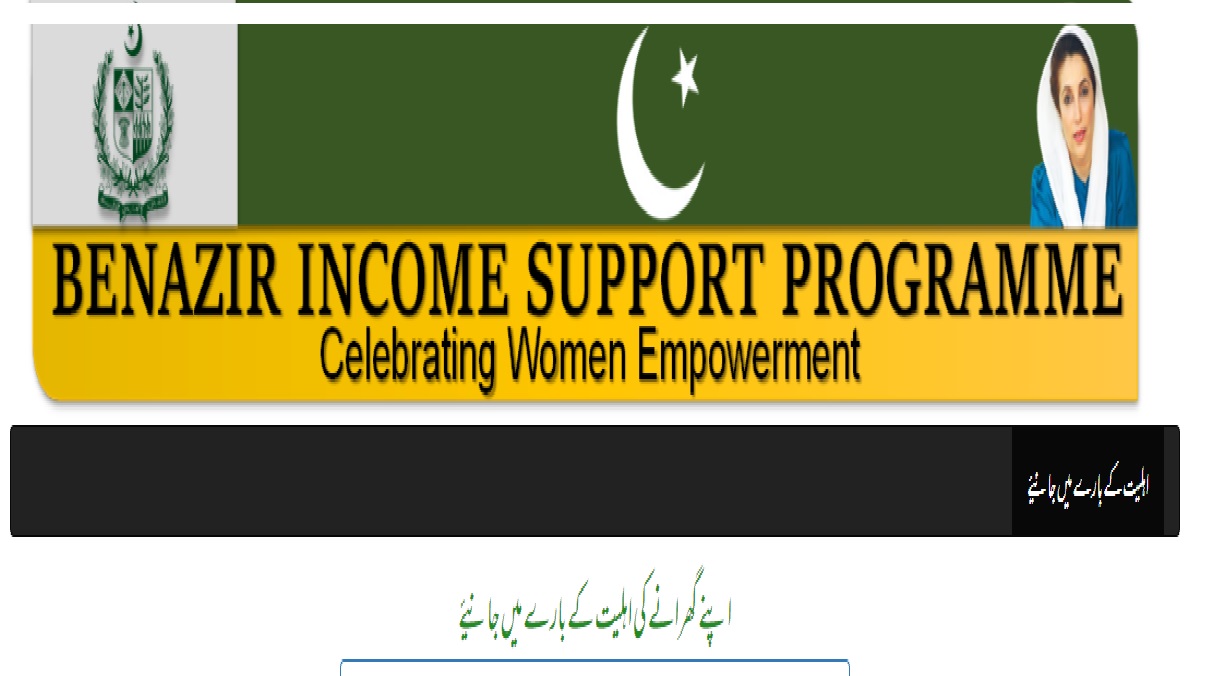بے نظیر انکم سپورٹ پروگرام (BISP) کو بجا طور پر پاکستان میں سماجی تحفظ کا مرکز سمجھا جاتا ہے، جو لاکھوں غریب گھرانوں کو روزی روٹی فراہم کرتا ہے۔ 2008 میں شروع ہونے والے اس پروگرام کا نام سابق وزیر اعظم بے نظیر بھٹو کے لیے رکھا گیا تھا تاکہ غربت سے لڑنے، خواتین کو بااختیار بنانے اور سماجی مساوات کو فروغ دینے کے لیے ایک پروگرام بنایا جائے۔ ان دنوں، یہ پروگرام ملک کے سب سے بڑے سماجی تحفظ کے اقدامات میں سے ایک بن گیا ہے جو غریب ترین غریبوں کی زندگیوں کو متاثر کرتا ہے۔
History and Objectives of BISP
حکومت پاکستان نے بے نظیر انکم سپورٹ پروگرام کو ایک اقدام کے طور پر شروع کیا جس کا مقصد غربت کے خاتمے کے لیے خاص طور پر 2008 کے عالمی مالیاتی بحران کے نتیجے میں پیدا ہوا، جس کی وجہ سے پوری دنیا میں مہنگائی اور بے روزگاری پھیلی۔ پاکستان میں کمزور گروہوں بالخصوص خواتین اور بچوں کو درپیش مشکل وقت نے فوری طور پر بڑے پیمانے پر مداخلت کا مطالبہ کیا۔
- BISP کے بنیادی مقاصد یہ ہیں:
- غربت کا خاتمہ: غربت کی لکیر سے نیچے آنے والے خاندانوں کو مالی امداد فراہم کرنا۔
- خواتین کو بااختیار بنانا: گھر کی خواتین سربراہوں کو نقد رقم کی منتقلی کے ذریعے خواتین کو بااختیار بنانا۔
- تعلیم اور صحت: مشروط نقد منتقلی کے پروگراموں کے ذریعے اسکول میں حاضری اور صحت کی بہتری کو فروغ دینا۔
- سماجی تحفظ: پسماندہ افراد کے لیے حفاظتی جال بنانا اور معاشی تفاوت کو کم کرنا۔
How BISP Works
The programme targets poor households through a rigorously implemented selection process from the National Socio-Economic Registry (NSER). This database identifies eligible households by assessing their socio-economic status through a very transparent mechanism.
Upon selection, cash transfers will be made on a monthly or quarterly basis, primarily through digital payment modalities to enhance operational efficiencies and reduce possible fraud risks. These funds are transferred directly to female heads of households to support women’s decision-making status at the household level.
Key Components of BISP
The BISP provides assistance through a number of initiatives that address the multi-faceted nature of poverty, which are as follows:
- Unconditional Cash Transfer (UCT): UCT is the main component of BISP; it consists of giving a fixed sum of cash to those eligible under the program. This money enables families to meet their most basic needs-food, clothing, and shelter.
- Conditional Cash Transfer (CCT): Under the Waseela-e-Taleem (Access to Education) scheme, there are cash transfers to families that are conditional upon their children being enrolled in primary school and actually attending it. This component is aimed at reducing child labor and promoting education for low-income families.
- Livelihood and Skills Development: Two programs, namely Waseela-e-Rozgar and Waseela-e-Sehat, are targeted at improving the self-reliance of beneficiaries through vocational training, health insurance, and entrepreneurship opportunities.
- Digital Inclusion: For its modernization, BISP embraced technology, which allows program beneficiaries to access their payment through biometric verifications systems followed by ATMs and mobile wallets. This arrangement ensured transparency and reduced the administrative hassle.
Impact of BISP
BISP has transformed the socio-economic condition of Pakistan. As per recent estimates, about 8 million families have benefited from the program, which has had total disbursements amounting to billions of rupees.
- Poverty Reduction:
- These cash transfers have contributed significantly to reducing disposable income inequality, enabling families to buy basic provisions and escape extreme poverty.
- Women Empowerment:
- BISP holds women as the principal applicants of aid, which elevates their status in household decision-making and decision-making at the community level; many women utilized this cash to start small businesses, thereby supplementing the household income.
- Educational Improvements:
- The Waseela-e-Taleem initiative has increased enrollment rates in school, especially for females, which makes it important for the next generation’s bright future.
- Health and Nutrition:
- BISP’s funds enabled families to access better health and nutrition, which reduced child mortality rates and improved well-being.
Challenges Faced by BISP
Despite the great things that it has achieved, BISP is still facing challenges.
- Limited Coverage:
- The program has grown over the years, but resource constraints and gaps in the NSER database are still keeping millions of deserving families outside its coverage.
- Political Interference:
- Opponents claim the program has been put to political use on occasion, questioning its non-partisan credentials. Thus, transparency and accountability have emerged as grave concerns.
- Leakages and Fraud:
- High-tech fraud and mismanagement are being reported despite it having the latest theft-proof mechanism for the program, which could warrant an increase in the monitoring set-up.
- Economic Pressures:
- Pakistan’s economic crush and high inflation have virtually negated the real value of cash transfers, therefore reducing their impact on the lives of beneficiaries.
Future of BISP
To overcome the challenges, BISP needs to reform and innovate in its operations. The following measures can be proposed:
- Expanding Coverage:
- The program’s budget can be increased and the NSER database improved in identifying deserving households and including them.
- Strengthening Governance:
- Introduce rigorous monitoring mechanisms to deter fraud and enhance transparency in the disbursement of funds.
- Integration of Social Services:
- Linking BISP beneficiaries with other programs in health, education, and employment to form a complete system of social safety nets.
- Adaptation to Inflation:
- The cash transfer amount should be revised periodically to ensure the purchasing power of beneficiaries is not eroded by in
خبل اکونت دلته چیک کي مننه
Conclusion
The Benazir Income Support Programme serves as a beacon of hope and resilience in the face of adversity for millions of impoverished families in Pakistan. By serving emergency relief for poor communities and empowering women, BISP has set some foundation for a fair and inclusive society. However, its sustained success requires reforms, more funding, and a real commitment to transparency. The BISP remains witness to the power targeted social protection schemes have in transforming lives as Pakistan grapples with confronting economic and social challenges.
Click Hare more information…..









